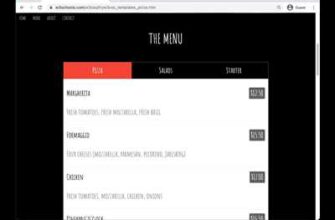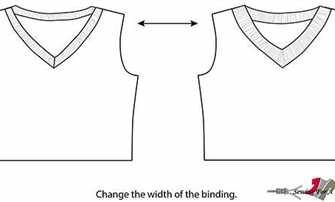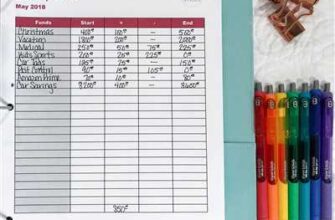
Creating a blog is a great way to share your ideas, promote your brand, or even sell products online. But before you can start attracting visitors and customers to your website, you need to create a blog URL. A blog URL is the web address that visitors will use to open your blog and access all the information you have written.
There are several advantages to having a shorter and custom blog URL. First, it’s easier for visitors to remember and share with others. Second, it helps to create a brand image and make your blog stand out from others. Lastly, shorter URLs are more visually appealing and look good when posted on social media, in comments, or in marketing materials.
If you are using WordPress or Blogspot, creating a custom blog URL is very simple. Both platforms offer a tutorial that will guide you step-by-step on how to set up your blog, add images, store information, and customize your URL. The process usually involves creating an account, choosing a theme, and adding necessary plugins to optimize your blog’s functionality.
When choosing a custom blog URL, it’s important to keep in mind that it should be relevant to your content and easy to type. You can use your brand name, your name, or a combination of keywords that describe your blog. Make sure that your URL reflects the purpose of your blog and attracts your target audience. Avoid using long or complicated words that might confuse visitors.
Thanks to the power of Google and other search engines, more and more people are using blogs as sources of information. Therefore, having an attractive and easy-to-remember blog URL is crucial for driving traffic to your website. So don’t underestimate the importance of creating a good blog URL and make sure to choose one that will help you reach your goals.
Add a blog to your online store

Adding a blog to your online store is a must if you want to create a stronger online presence for your brand. By having a blog, you can provide your customers with valuable information, tutorials, product reviews, and more. It’s a good way to show your expertise and help your customers make more informed decisions.
One of the advantages of adding a blog to your online store is that it can also help with your search engine optimization (SEO). By creating blog posts with helpful and relevant content, you can increase your chances of appearing higher in Google search results.
In addition to the SEO benefits, having a blog can also make it easier for your customers to find information about your products, brand, and store. By linking to your blog posts from your store, you can provide more detailed and in-depth information that may not be suitable for your product pages. This can help your customers make a more informed decision before making a purchase.
If you’re using a platform like WordPress for your online store, adding a blog is very simple. You can easily create a custom blog page and integrate it into your existing website. Thanks to the user-friendly interface and various templates, you can customize the design of your blog to match the look and feel of your store.
When creating blog URLs, keep in mind that shorter URLs are better for search engine optimization. Shorter URLs are also easier to share on social media and in comments. You can use a URL shortener like Bitly to easily shorten your blog post URLs and make them more user-friendly.
Stack the advantages of having a blog for your online store by creating captivating content. Write blogs that are engaging, well-written, and informative. Show your customers why they should trust your brand and products. Be sure to include images to make your blog posts more visually appealing.
By adding a blog to your online store, you can open up a whole new world of marketing opportunities. It allows you to connect with your audience on a deeper level and build a community of loyal customers. So, take advantage of the benefits and start adding a blog to your online store today!
Why Shorten URLs in WordPress
Shortening URLs in WordPress is a very important aspect of running a successful blog or website. There are several reasons why you should consider using shorter URLs for your WordPress blog:
- Easier to Remember: Shorter URLs are easier for visitors to remember and type into their browser. If your URL is long and complicated, it can be difficult for people to remember it or share it with others.
- Better for SEO: Shorter URLs can have a positive effect on your website’s search engine optimization (SEO) efforts. Search engines like Google prefer shorter URLs because they are easier to read and understand. This can help improve your website’s search engine rankings.
- Improved User Experience: Shorter URLs can improve the overall user experience of your website. They make it easier for visitors to navigate your site and find the information they are looking for.
- Increased Clickthrough Rates: Shorter URLs have been shown to have higher clickthrough rates compared to longer ones. This means that more people are likely to click on your shortened URLs, increasing your website’s traffic and visibility.
- Better Social Sharing: Shorter URLs are easier to share on social media platforms and in online communities. They take up less space in comments and posts and are more visually appealing.
- Branding Opportunities: Shortened URLs can be customized to include your brand name or a relevant keyword. This can help reinforce your brand and make your URLs more memorable.
- Trackable and Analyzable: Shortened URLs can be tracked and analyzed using online tools and analytics platforms. This can provide you with valuable information about the effectiveness of your marketing campaigns and the behavior of your website’s visitors.
Overall, shortening URLs in WordPress has many advantages. It is a simple and cost-effective way to improve the performance of your blog or website. By making your URLs shorter, you can make it easier for your visitors to navigate your site, increase your website’s visibility in search engine results, and improve the overall user experience.
Thanks to modern URL shortening services, creating shorter URLs is now easier than ever. There are many online tools and platforms like Bit.ly and TinyURL that allow you to shorten URLs with just a few clicks. These services are often free or very cheap, making them accessible to bloggers and online stores of all sizes.
In this tutorial, we will show you how to shorten URLs in WordPress using different methods and tools. We will also discuss some best practices and tips for creating and using shortened URLs effectively. So, let’s get started with this informative guide!
Comments
If you want to add comments to your blog, there are several ways to do it. Some people prefer to use an online commenting system, like Disqus or Livefyre. These services allow visitors to comment on your blog posts using their social media accounts or by creating a new account. They can also reply to other comments and receive notifications when someone responds to their comment.
Another option is to use the built-in comment system provided by the blogging platform you are using. For example, WordPress and Blogspot both have comment features that you can enable for your blog. These systems allow visitors to leave comments directly on your blog without the need for a separate account.
Comments can be a good way to engage with your readers and gather feedback on your blog posts. They also help to build a sense of community and encourage visitors to return to your blog. Additionally, comments can improve the visibility of your blog in search engine results, as search engines often index and display comments. This can help to attract more visitors to your blog and increase your online presence.
However, there are also some disadvantages to allowing comments on your blog. For example, comments can sometimes be spammy or contain inappropriate content. You may also receive negative or critical comments, which can be difficult to deal with. To mitigate these risks, you can enable comment moderation, which allows you to review and approve all comments before they are published. You can also add a Captcha or other security measures to prevent automated spam comments.
In conclusion, comments can be a valuable addition to your blog, providing an interactive and engaging experience for your visitors. Whether you choose to use an online commenting system or the built-in comment feature of your blogging platform, comments can help to enhance your blog and create a strong online presence for your brand or business.
Thanks for reading!
Sources

When creating a blog, there are several sources that can help you generate a short and customized URL for your website. Here are some options:
- WordPress: If your blog is hosted on WordPress, you can easily add a custom domain name to your account. This will not only make your blog URL shorter, but it will also enhance your brand presence.
- Google Blogspot: If you want to create a blog with Blogspot, Google’s blogging platform, you can open a new account and choose a shorter URL that suits your needs. This will make it easier for visitors to find and remember your blog.
- URL shortening websites: There are many online URL shortening services, such as Bitly, TinyURL, and Rebrandly, that allow you to create shorter URLs for your blog. These websites store the long URL and redirect visitors to the shorter version when they click on the link.
- Stack Overflow: Stack Overflow is a popular website for coding and software development. It has a vast amount of information on creating and customizing blog URLs. You can search for tutorials and ask questions on the platform to get help with this topic.
- Marketing blogs and websites: Many marketing blogs and websites provide valuable information on creating blog URLs that are both short and SEO-friendly. They can give you tips on how to optimize your URL for search engines and attract more visitors to your blog.
Before you decide which source to use, it’s important to understand the advantages and disadvantages of each option. Take into account factors such as cost, ease of use, and compatibility with your blogging platform. By choosing the right source, you can create a blog URL that will help you showcase your brand and attract customers to your online store.
- – You can add custom domain names to your account, which is good for brand building
- – Blogspot allows you to choose a shorter URL
- – URL shortening websites store the longer URL and redirect visitors to the shorter URL
- – Stack Overflow has a lot of information on creating blog URLs
- – Marketing blogs and websites can give you tips on optimizing your URL for search engines
Thanks to these sources, creating a short and customized blog URL has become much easier. Whether you want to add a custom domain name to your WordPress account or choose a shorter URL for your Blogspot blog, there are plenty of options available to help you achieve your goals.









